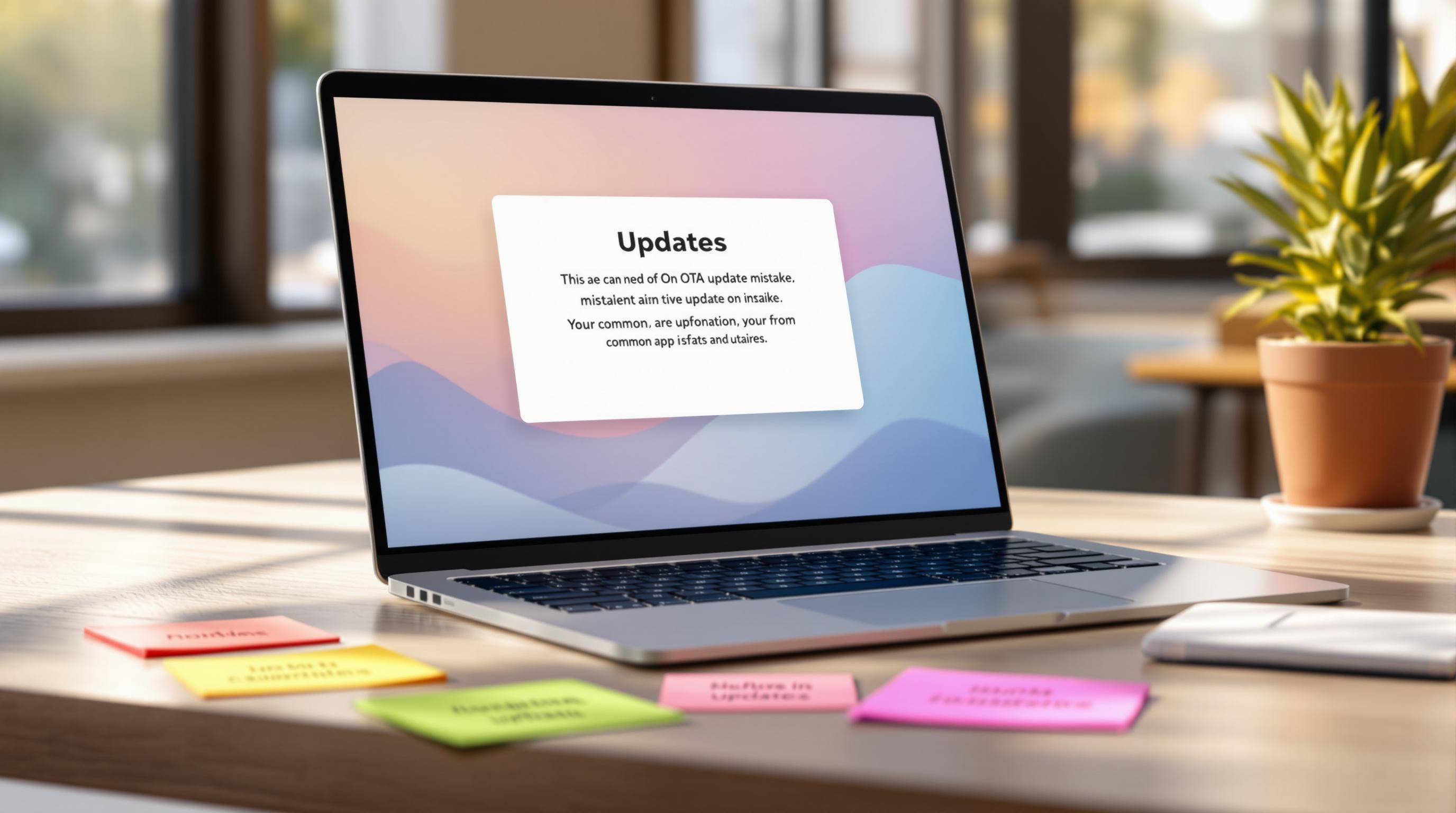Capacitor forums are essential for plugin developers to solve issues, share knowledge, and connect with others. Whether you’re troubleshooting, sharing plugins, or learning best practices, these forums provide valuable resources and support.
Key Takeaways:
- Top Forums: Use Discord for real-time help, GitHub Discussions for detailed conversations, and Stack Overflow for technical answers.
- Best Practices: Write clear questions, share code snippets, and follow forum rules for better responses.
- Extra Tools: Leverage resources like Capgo for instant app updates and official docs for reliable guidance.
Quick Start:
- Join Forums: Start with Discord and GitHub Discussions.
- Ask Questions: Provide detailed context and code examples.
- Use Tools: Try Capgo for faster updates and debugging.
Capacitor forums are your go-to for efficient plugin development. Dive in to learn, share, and grow!
Main Capacitor Forums

Capacitor developers have several go-to forums for connecting, collaborating, and solving problems.
Discord Channel Guide

The official Discord server is a great place for real-time discussions and quick troubleshooting. It’s organized into focused channels, such as:
- #plugin-development: For discussions about creating and maintaining plugins.
- #troubleshooting: A space for immediate technical help.
- #announcements: Stay updated with the latest news about Capacitor and its ecosystem.
You can enable notifications for important channels, and the server’s searchable message history makes it easy to revisit past solutions.
GitHub Discussion Board
GitHub Discussions acts as the main hub for the Capacitor community. It’s ideal for detailed technical conversations, feature suggestions, bug tracking, and code reviews. The board is divided into categories like Q&A, ideas, showcases, and bug reports, making it easy to find topics that interest you.
Next, let’s look at a forum that connects Ionic and Capacitor developers.
Ionic Forum’s Capacitor Section

The Ionic Forum has a dedicated Capacitor section where developers discuss long-form technical topics. It’s especially helpful for addressing integration challenges and finding solutions that work across different frameworks.
Stack Overflow Tips

Stack Overflow is another key resource for plugin developers. The [capacitor] tag is a hub for sharing technical knowledge. Keep these tips in mind:
- Tag combinations: Use [capacitor] with related tags like [ionic] or [typescript] to increase your post’s visibility.
- Code examples: Add clear, concise code snippets to explain your issue.
- Search first: Many common plugin issues are already answered, so check existing solutions before posting.
Forum Usage Tips
Get the most out of forums by following these best practices.
Writing Good Questions
Crafting clear and detailed questions helps you get faster, more helpful responses. Here’s how:
- Start with a descriptive title: Summarize your issue in a few words.
- Provide context: Include your Capacitor version, platform (iOS/Android), and plugin versions.
- Describe your efforts: Share what you’ve already tried and any error messages you’ve encountered.
- Reproduce the problem: Offer minimal steps or code snippets to help others understand your issue.
A good question includes a concise title, your setup details, a clear problem description, steps to reproduce, a code example, and any errors. Make sure your code is as easy to follow as your question.
Code Formatting Guide
Well-formatted code makes your posts easier to read and understand. Here’s a quick guide:
- Use triple backticks (```) with the language name for syntax highlighting.
- Keep nested code blocks consistently indented.
- Break up long lines of code for readability.
- Add comments to explain key parts of your code.
Example:
import { Camera, CameraResultType } from '@capacitor/camera';
async function takePicture() { try { // Set options const image = await Camera.getPhoto({ quality: 90, allowEditing: false, resultType: CameraResultType.Uri });
// Process image console.log('Image path:', image.path); } catch (error) { console.error('Camera error:', error); }}Using these techniques ensures your code is easy to follow when discussing technical issues.
Forum Rules and Behavior
To foster a helpful and respectful community, keep these rules in mind:
- Be respectful: Treat everyone with courtesy.
- Stay focused: Keep discussions related to Capacitor plugin development.
- Avoid duplicate posts: Search the forum before starting a new thread.
- Follow up: Mark solutions as accepted and update your threads with resolutions.
- Be patient: Remember that members may be in different time zones.
- Share your knowledge: Post solutions to help others facing similar issues.
Plugin Development Help
Forums are an essential resource for developers working on Capacitor plugins. They provide a space to test ideas, troubleshoot issues, and share finished plugins with the community.
Testing Plugin Ideas
When you have an idea for a plugin, start by creating a proposal that includes:
- Problem statement and solution: What problem does your plugin solve, and how?
- Target audience: Who will benefit from using your plugin?
- Technical approach: How will the plugin work, technically?
- Platform support: Will it work on iOS, Android, or the web?
Here’s a simple code example to include in your proposal:
// Example plugin interfaceinterface MyPluginInterface { getData(): Promise<{ value: string }>; configure(options: { key: string }): Promise<void>;}Once your idea is approved or validated, use structured troubleshooting methods to overcome any development hurdles.
Fixing Problems
When troubleshooting, be thorough. Describe your problem clearly, include details about your development environment, outline the debugging steps you’ve taken, and share any error messages. Focus on providing specifics beyond standard troubleshooting advice.
Here’s an example of a detailed implementation for debugging:
// Current implementationasync function checkPermissions() { try { const status = await this.plugin.checkPermission(); return status; } catch (error) { console.error('Permission check failed:', error); return null; }}Once you’ve resolved the issue, refine your plugin and prepare it for sharing.
Sharing Your Plugin
When announcing your plugin, make sure to include:
- Clear documentation: Explain how to use the plugin step-by-step.
- Examples: Provide practical, real-world use cases.
- Version compatibility: Specify which versions of platforms or frameworks are supported.
- Support channels: Let users know how they can get help if needed.
Organize your plugin’s features in a simple table like this:
| Feature | Description | Example Usage |
|---|---|---|
| Core functionality | Main plugin capability | Basic implementation code |
| Configuration options | Available settings | Configuration snippet |
| Platform-specific features | iOS/Android differences | Platform-specific code |
Stay active in forum discussions to answer questions and address concerns quickly. This not only helps users but also builds trust within the community.
Extra Development Tools
In addition to forums, there are other tools that can make plugin development and deployment faster and more efficient. These tools go beyond advice, offering hands-on solutions to streamline your workflow.
Official Docs
Capacitor’s official documentation is a go-to resource. It includes API references, plugin templates, migration guides, and security tips. Plus, tools for real-time updates are available to make development even smoother.
Plugin Libraries
Capgo Updates

Capgo makes instant app updates simple. It has delivered 23.5 million updates across 750 production apps, with an 82% success rate. Impressively, 95% of active users receive updates within 24 hours. Its global CDN can download a 5MB bundle in just 114ms. Capgo supports Capacitor 8, offering partial update capabilities [1].
“We practice agile development and @Capgo is mission-critical in delivering continuously to our users!” - Rodrigo Mantica [1]
To get started, run:
npx @capgo/cli initCapgo works seamlessly with CI/CD systems and offers features like targeted beta testing and staged rollouts using its channel system. For a one-time fee of $2,600, it also provides real-time analytics and error tracking, giving you full visibility into the update process.
Conclusion
Main Points
Community forums play a key role in Capacitor plugin development. They offer a space for quick idea validation, troubleshooting, and knowledge sharing among peers. These forums also keep you updated on the latest trends and practices in the Capacitor ecosystem. With official documentation, active community support, and a variety of tools, the plugin ecosystem becomes a strong foundation for developers. Engaging actively allows you to gain expert insights and build meaningful connections within the community.
Getting Started
Ready to jump in? Here’s how to begin:
- Join key platforms: Participate in Discord and GitHub Discussions to connect with the community and explore official documentation.
- Share your plugins: Contribute your work to help others and gain constructive feedback.
- Use tools for efficiency: Tools like Capgo can simplify updates, testing, and deployment, making your development process smoother.




